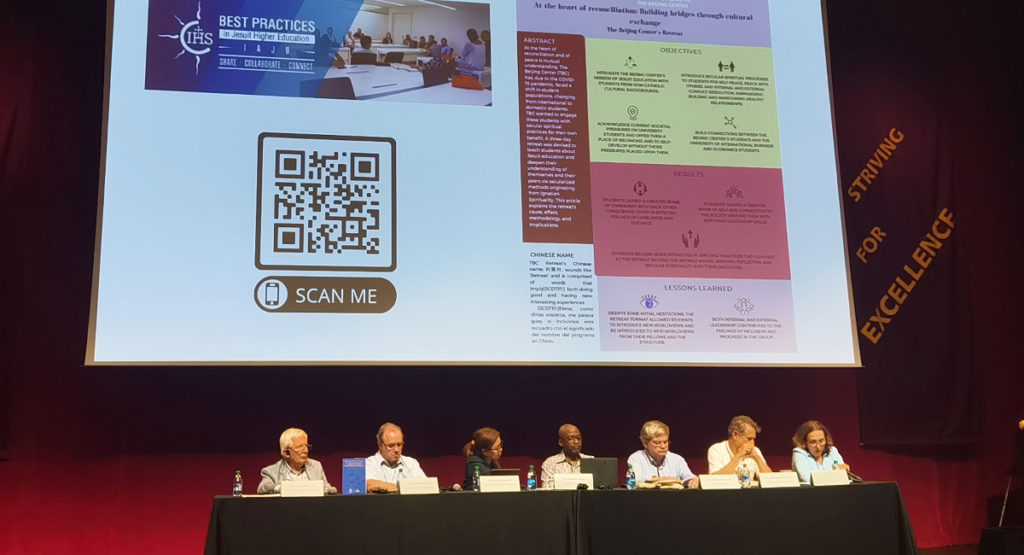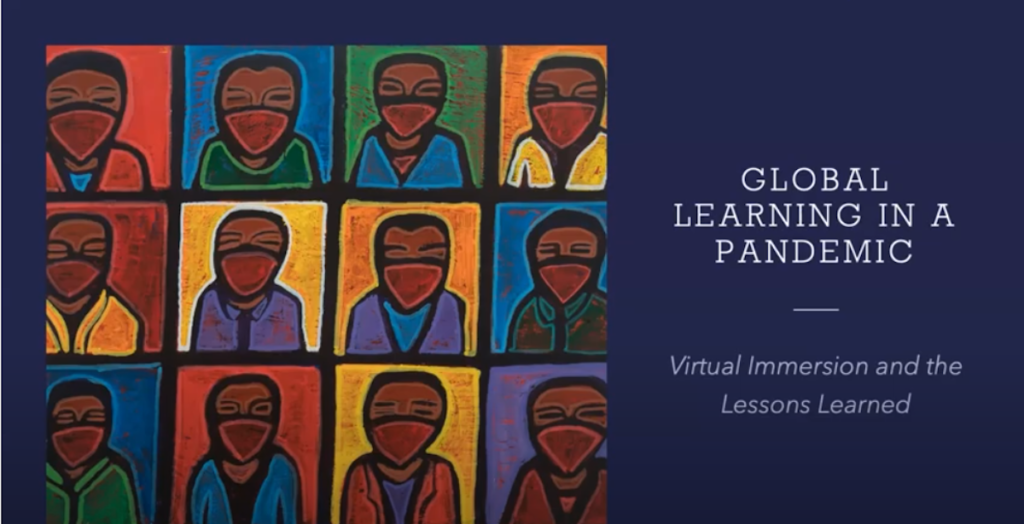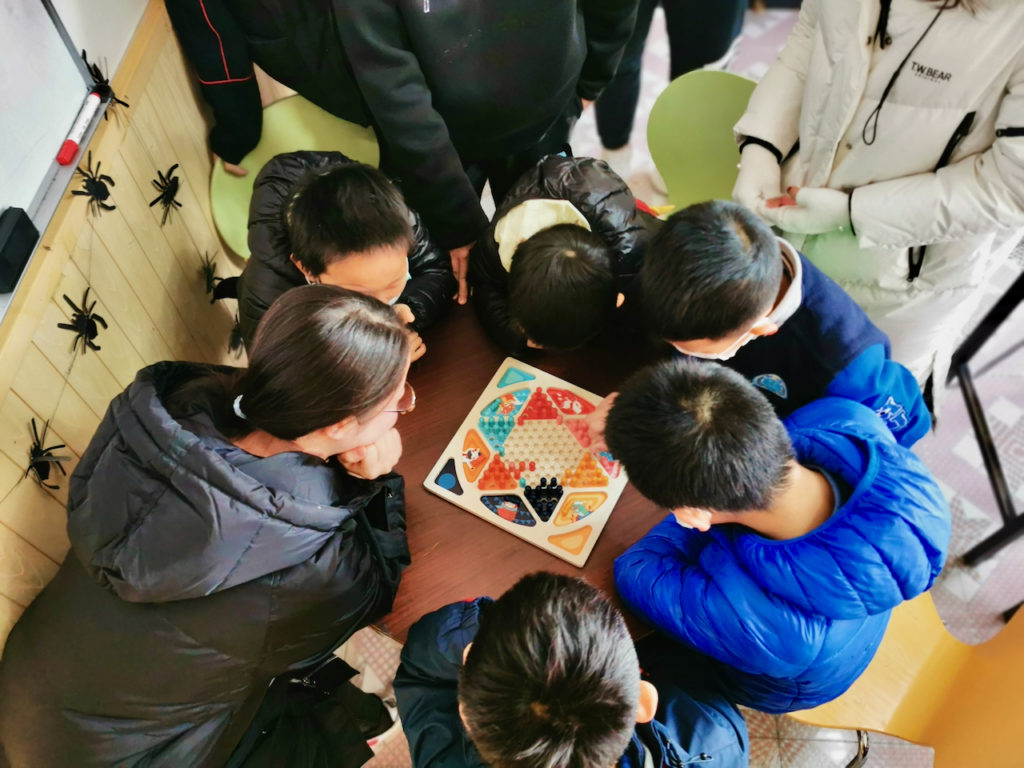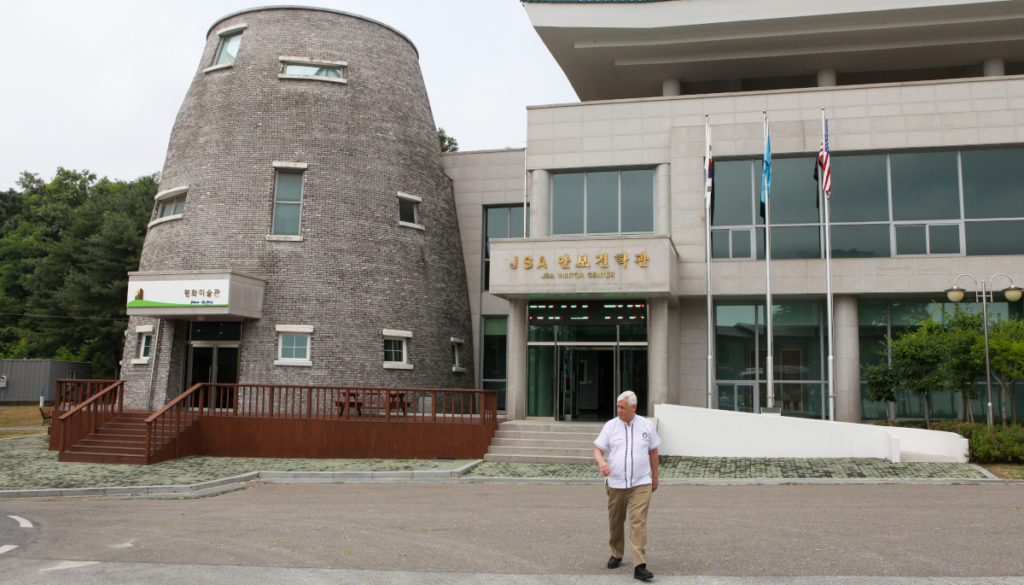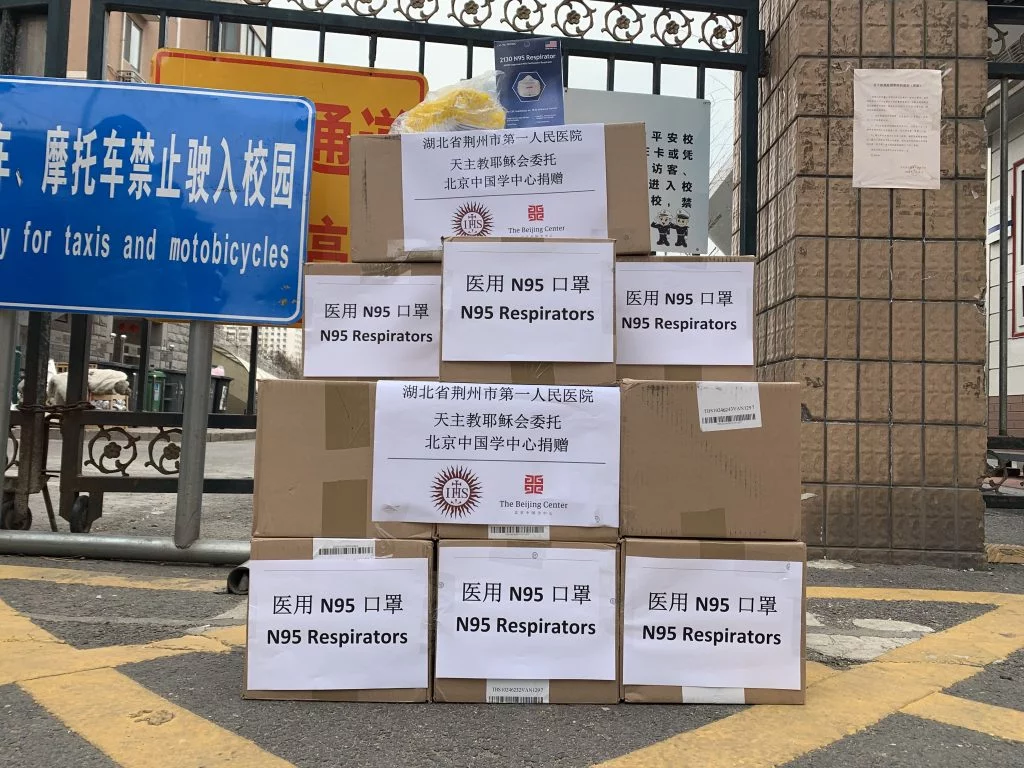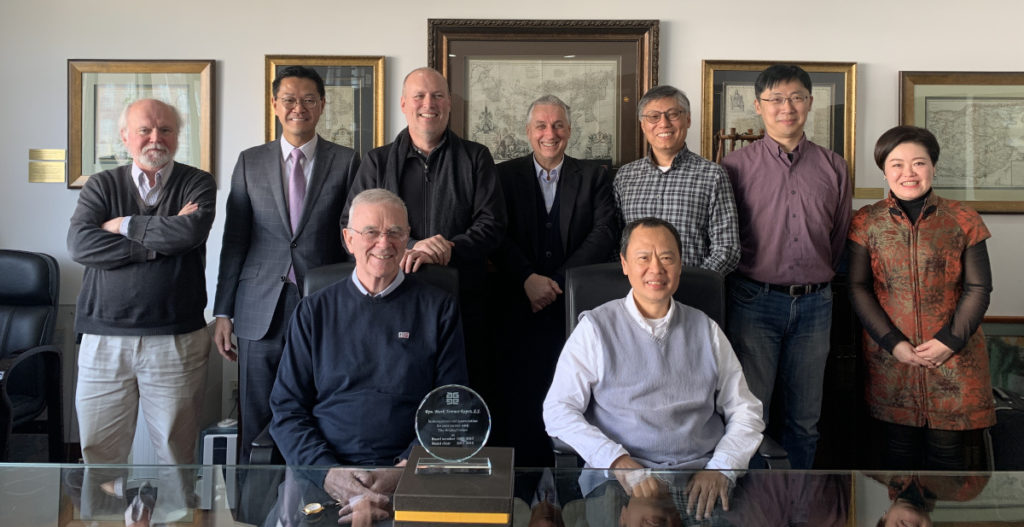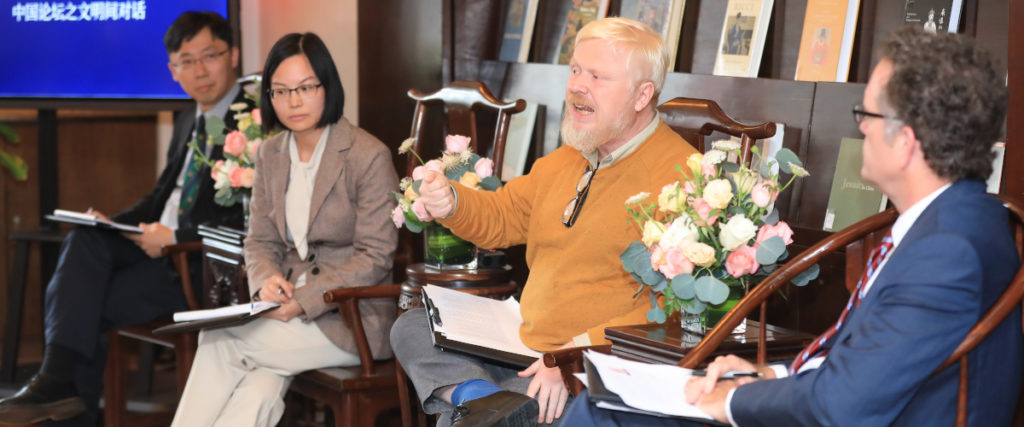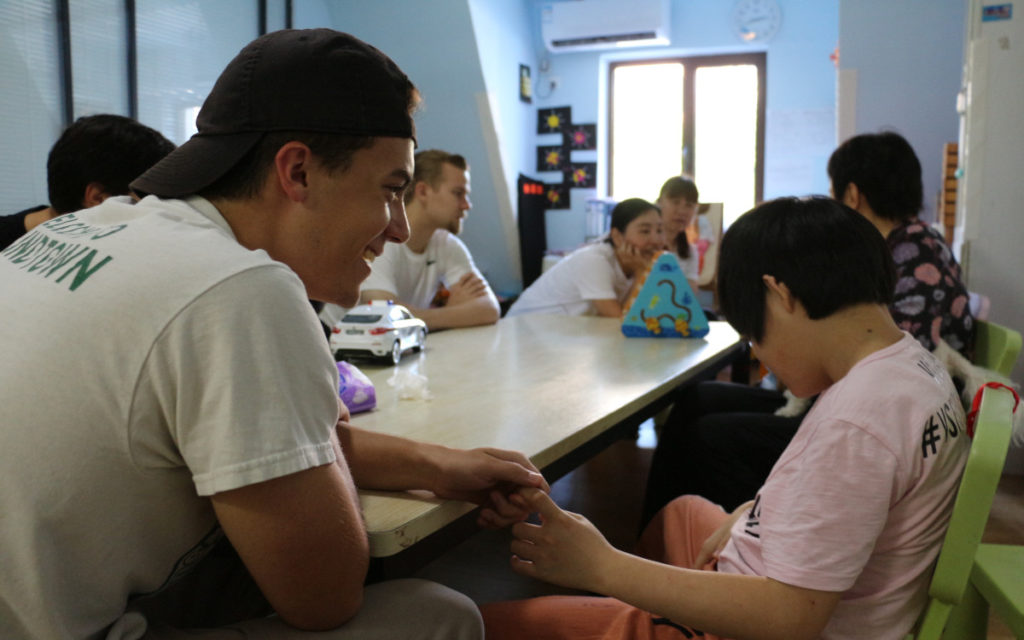A paper by The Beijing Center (TBC) has been published in the “IAJU Best Practices in Jesuit Higher Education Project,” an initiative coordinated by the Kircher Network and composed of contributions from the International Association of Jesuit Universities (IAJU) regional networks. Continue reading “TBC featured in IAJU’s Best Practices in Jesuit education”
TBC featured in IAJU’s Best Practices in Jesuit education
TBC: Caring for Our Common Home -Virtual Event Recap
On July 16, 2021, TBC held its series event East Meets West Talks, bringing together a diverse group of speakers who shed light on a pressing global issue – environmental destruction and Caring for our Common Home – planet Earth. Read more below or watch the full event recording here. Continue reading “TBC: Caring for Our Common Home -Virtual Event Recap”
In TBC’s “East Meets West”, Jesuit universities in US and Philippines reflect on service-learning
As part of its “East Meets West” talk series, The Beijing Center (TBC) hosted a virtual conversation with Loyola Marymount University in California, Ateneo de Davao University in southern Philippines, and Five Loaves and Two Fish, a Beijing-based organisation supporting children of migrant families. The conversation centred around the importance of service-learning as community involvement and student engagement in Jesuit education.
Interim Director of the Center for Service and Action at Loyola Marymount University, Patrick Furlong, began the discourse by recollecting the virtual immersion at the university and how students are connecting their passions and interests with social issues through community participation. Furlong described the service-learning approach through a global citizen lens, where students are encouraged to learn in and out of the classroom in order to use their knowledge and contribute to the betterment of the world.
Loyola Marymount University has established immersion programmes to meet their students’ need for authentic encounters, which have become progressively necessary during the ongoing pandemic. As part of these immersion programmes, students and educators participate in virtual activities that satisfy cultural curiosity, offer a safe space for reflection, and increased awareness of formative social issues.
Another service-learning perspective is practised at Ateneo de Davao University. Agnes Joy J Sagaral, Service-Learning Coordinator at the Arrupe Office of Social Formation, stressed the equal importance given to the learning goal and the service goal throughout each service initiative at Ateneo. In implementing these programmes, service-learning is framed by the Ignatian Pedagogical Paradigm. It follows a framework, where students are first provided with the context, followed by experience, reflection-action, and, finally, evaluation. An important part of the programme is the recognition given to the assisting partners and the results of their efforts in serving Asia-Pacific communities.
Fr Johnny Rakotoarisoa concluded the discussion by describing Five Loaves and Two Fish’s service efforts. As Programme Coordinator, Fr Rakotoarisoa shared the education and developmental support they provide for children of migrant families. Children are taught and cared for by dedicated volunteers, who maintain the facilities and accumulate resources to meet the children’s needs while they are in their care. Many of the organisation’s service-learning components have been a part of TBC students’ service-learning experience for years. Students have seen first-hand how children need a stable learning space as their families adjust to new lifestyles to make a better living.
An inquiry that arose from the audience was how service-learning will progress and evolve – virtually and in-person. This drew attention to the new challenges and opportunities of immersion programmes and the unfulfilled potential to do more for our communities. How, through risk, trial and error, and the use of valuable resources, service-learning initiatives can strengthen the cultural life and economic development of respective communities while shaping students into proactive and compassionate citizens.
The Beijing Center holds Virtual Internship Showcase for students
The Beijing Center (TBC) hosted a Virtual Internship Showcase to recap the student-interns’ experiences during their Fall 2020 semester. TBC began offering virtual internship experiences to students interested in China and its growing business market as one way of adapting and modifying educational methods with the development of the global pandemic.
On 21 December, working professionals, professors, and TBC staff had the opportunity to hear from student-interns from Marquette University in Wisconsin, USA, and Sanata Dharma University in Yogyakarta, Indonesia about their individual experiences working with the World Wildlife Fund (WWF) and Glue Up (formerly EventBank).
The students shared their internship work and how it has contributed to improving their skills and giving them an upper hand in continuing their studies. A common topic was how they learned from a different country and company culture and how to communicate better when working with people in different time zones.
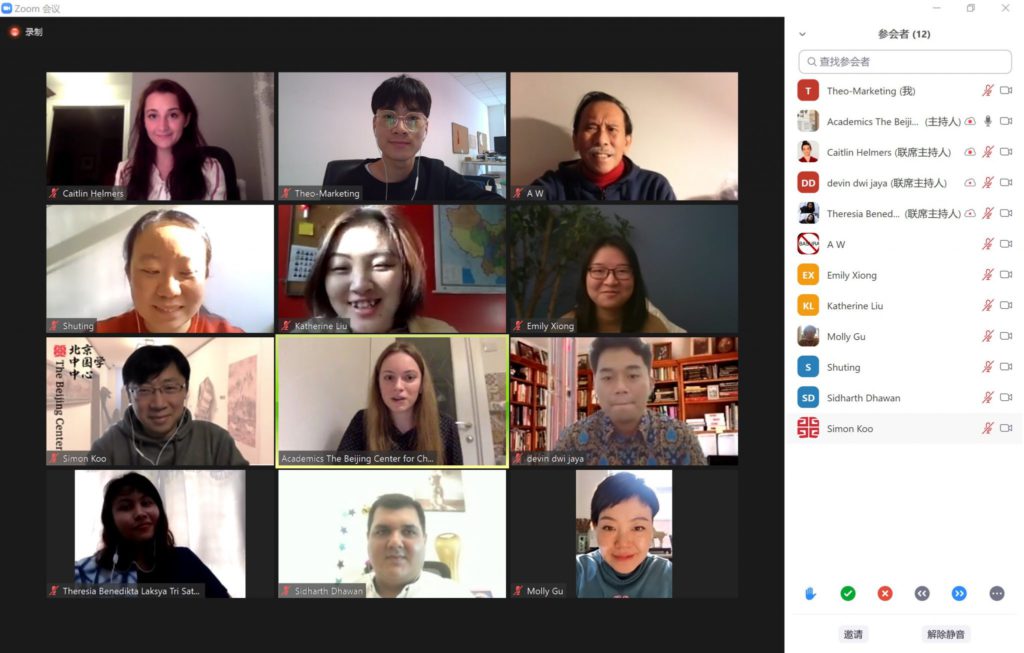
The showcase presentations concluded with a Q&A session from the audience. One of the supervisors commented on the challenges and blessings that virtual internships can bring during this particular time and how the experience of a virtual internship can help young professionals begin developing a solid remote work ethic and learning to work independently and effectively outside of the office environment.
This was the second time TBC held a Virtual Internship Showcase, the first being in summer 2020.
Multiplying the five loaves and two fish
Each semester, students at The Beijing Center (TBC) are encouraged to participate in local service-learning activities to practice the Jesuit tradition of helping others and attaining a sense of social responsibility. This fall semester, TBC students volunteered at Five Loaves and Two Fish, an organisation acting to support migrant worker families. Continue reading “Multiplying the five loaves and two fish”
Traveling the long road to peace and reconciliation
“The past,” Faulkner warned “is never dead”, nor is it really past. Until we break down the barrier of division and fear that goes back many generations, no new bridges of hope can be built. Ever since General Congregations 35 and 36, the Society of Jesus has made reconciliation a key message. It is the theme that brought Fr General Arturo Sosa to Asia in the summer of 2019.
Continue reading “Traveling the long road to peace and reconciliation”
Society of Jesus donates surgical N95 masks to aid healthcare workers in Hubei province battling COVID-19
The Society of Jesus has donated 1,800 surgical N95 masks to Jingzhou No 1 People′s Hospital in Hubei province.
Jesuit Superior General Fr Arturo Sosa SJ approved the donation, which was coordinated and arranged by The Beijing Center for Chinese Studies (TBC), the Jesuit education centre and intellectual hub operating in mainland China since 1998.
“The Society of Jesus is a Society of solidarity. This small gesture is a symbol of that wide and deep solidarity,” said Fr José Magadia SJ, General Counsellor and Regional Assistant for Asia Pacific.
Earlier this month, Chinese authorities said there is an urgent need for medical supplies, including surgical N95 masks. These masks offer better protection than regular surgical masks and are designed to prevent 95 per cent of small particles from entering the nose and mouth area.
Though not prominently appearing in international media, Jingzhou city, located about 220 kilometres (137 miles) west of Wuhan, has been greatly affected by the COVID-19 outbreak. The disease has killed more than 2,996 people and infected over 87,728 globally.
With over a thousand infected in Jingzhou city alone, healthcare workers are grappling with certain medical supplies shortages. TBC has been in direct contact with Jingzhou No1 People’s Hospital, confirming the serious need for surgical N95 masks. The centre ensured the delivery of the masks, which arrived from Canada, to the hospital’s healthcare workers.
“TBC is honored to be the facilitator and platform connecting the Jesuits to mainland China. We thank the Society for the generous donation and continued support during this challenging time,” said TBC Executive Dr Simon Koo.
“It is our privilege to support your meaningful mission with our humble donation,” said Chinese Jesuit Provincial Fr Stephen Chow SJ to the healthcare workers. He assured them of the Society’s earnest prayers and told them: “Please stay safe and healthy for your loved ones and your mission.”
JCAP President Fr Tony Moreno is new Chair of The Beijing Center
Fr Tony Moreno SJ, President of the Jesuit Conference of Asia Pacific (JCAP), has been named as Chair of The Beijing Center (TBC) to replace Fr Mark Raper SJ who has concluded his service as Board Chair and Board Member after a 12-year tenure. Fr Raper is currently Superior of the Myanmar Jesuit Mission and former JCAP President.
Besides Fr Moreno, Chinese Jesuit Provincial Fr Stephen Chow SJ was elected Vice Chair, a newly created position that is being proposed. Dr Thomas Poon was elected Board Member.
The election took place during the TBC Board of Directors meeting on November 18. The night prior to the meeting, the board members attended the TBC Annual Thanksgiving Dinner in honour of the service learning initiatives this semester.
The event brought together celebrated partnerships and friendships, along with the opportunity to recognise the unparalleled contribution organisations, such as Bethel China, make towards improving the lives of underprivileged and impaired children in China, with the support of partners and volunteers like TBC students and staff.
In his final speech as Chair, Fr Raper said he was grateful for the wonderful reunion between passionate individuals and organisations who continue working to provide students with quality international education.
Read more about the thanksgiving dinner here.
The Jesuits in China – models of intercultural dialogue
The Beijing Center for Chinese Studies (TBC) hosted the first China Forum to be held in Mainland China. A collaboration between Georgetown University and La Civiltà Cattolica, the China Forum convenes Chinese academics and public figures with international partners to discuss common challenges at the intersection of culture, ethics and global society. The forum on October 17 was premised on the view that today’s political and ideological divides make intercultural dialogue critically important to advance the global common good.
Dr Thomas Banchoff, Vice President for Global Engagement at Georgetown University, described the challenges faced by the Jesuits in cultural dialogue from the time the Society was founded in 1540, to its re-establishment in 1814 and continuing until today. As forum moderator, Banchoff asked the panelists for their take on Jesuit dialogue, what the successes and failures are and the implications of the Jesuit culture in the contemporary era.
Fr Benoit Vermander SJ, Professor and Doctoral Advisor at Fudan University, defined success and failure – two words not found in the gospel – as “taking a position”, where success is a process that can be achieved when one accepts what is happening. He provided an insightful selection of encounters that speak to the Jesuit process, in particular the Jesuit missions from 1842 to 1949, where it was not East against West, but two contributing nationalities present during each mission (Italians and/or French with Chinese). The Jesuits in China were challenged by new ways, such as biblical chronologies versus Chinese chronologies or “what to call God in Chinese”. This exchange of knowledge has paved the way for the “global endeavours in which all dialogues are crisscrossing”. Fr Vermander pointed out that Jesuits should not focus on a single dialogue but remain at the intersection of several dialogues – acting as facilitators for other interpreters.
To a certain extent altruism is necessary to initiate cultural dialogue, but Dr Simon Koo, TBC Executive Director, said it, alone, is not enough – both sides must engage equally. Koo outlined three constructs from the Theory of Planned Behavior – behavioural beliefs, subjective norm and perceived behavioural control – that speak to the motives and thought-process of adapting to a new culture. For example, the Jesuits used different mechanisms to bring science, mathematics, new music, among other things to China to provide incentives for dialogue. His parting message that knowledge and education used to be a luxury but is now widely accessible because of technology left the audience to question whether the incentives for continuing dialogue are minimised in the modern age.
Associate Professor Fangfang Ji from the Chinese Academy of Social Sciences spoke particularly on how Jesuits served as intermediaries in intercultural communication by establishing the first Chinese magazines/newspapers. In an effort to become accepted by local leaders, Jesuit missionaries wrote columns on teachings, science and technology. As “communicator”, Matteo Ricci dressed as a Chinese scholar (instead of a monk) to alleviate his “foreignness” and attempt to adapt to the local culture. Ji said this exemplifies the strategy of “accommodation”, which can be applied to the whole communication process.
Continuing Ji’s example of Matteo Ricci, Bin You from Minzu University of China, related the many ways that Ricci engaged with the Chinese people. Apart from changing his clothing, Ricci developed a theological system according to Chinese cultural terms. This includes his perseverance to achieve lingual adaptation by correctly describing parts of the soul and God. Ricci’s ability to integrate himself in Chinese culture can still be seen today in Chinese leaders’ enthusiasm for continuing intercultural dialogues.
Another example of intercultural dialogue in contemporary times is the Jesuits’ contribution to music. Music professor Lionel Hong from Fu Jen Catholic University shared how Jesuits used hymns and translated them to Chinese for locals to use in praise of God, while also incorporating the Chinese style in Western music. To demonstrate, Hong sang a hymn in both styles – a wonderful closing to the discussion.
The first China Forum resulted in an abundance of ideas and thoughts enough to make a person question their own part in facilitating intercultural dialogue. The audience raised how to incorporate dialogue today and how the exchange of knowledge can continue through a process of give-and-take, when it means something different in each place. The responses spoke to the individual effort and readiness of people to be able to engage in intercultural dialogue and how Jesuit sinologists have their share of contributions to make as well. [The Beijing Center]
Vukica Elenovska is the communications assistant at TBC. She is an alumnus of TBC and Loyola University Chicago focused on cross-cultural communication.
The Jesuit tradition of service learning at TBC
One of the distinguishing features of Jesuit education is the inclusion of community service in the curriculum. The Beijing Center (TBC) is rooted in the Ignatian tradition of being “men and women for others”.
 Since TBC’s founding in 1998, students in the study abroad programme participate in service learning activities each semester in Beijing. As persons for others, they’ve volunteered with disadvantaged youth, worked as English tutors and helped renovate classrooms in the Beijing suburbs.
Since TBC’s founding in 1998, students in the study abroad programme participate in service learning activities each semester in Beijing. As persons for others, they’ve volunteered with disadvantaged youth, worked as English tutors and helped renovate classrooms in the Beijing suburbs.
This fall semester, students from 11 Jesuit universities in the United States and two from Colombia are participating in TBC’s service learning activities. On September 21 they spent an entire day at the Bethel China Foundation, an organisation which provides support to thousands of vulnerable children through training and outreach at five different locations across the country. One of their projects called “Love is Blind” serves young orphaned children who suffer from visual impairments.
Loyola University Maryland student Zachary met a small girl named Callie at Bethel. “She was very outgoing and had more energy than most of the TBC students combined”, he writes. “This was the highlight of my weekend; to be able to see the happiness in her eyes, and more so, the difference one person can make in someone’s life.”
More service learning opportunities are lined up in October and November, and on November 17, TBC will host its annual fundraiser dinner themed the “Feast of Bartimaeus” with university staff, non-profit and business partners, scholars, professors, alumni, students and their families. The event will showcase the wonderful service learning work the students have done this semester with partner charity organisations, working with disadvantaged youth in Beijing.
“Being that The Beijing Center is a Jesuit organisation, we value service and community as a crucial part of our academic and social life in China,” writes Zachary. “TBC offers plenty of these types of volunteer opportunities and strongly recommends them, as they are eye-opening experiences to say the least!”
Read Zachary’s reflection here.

